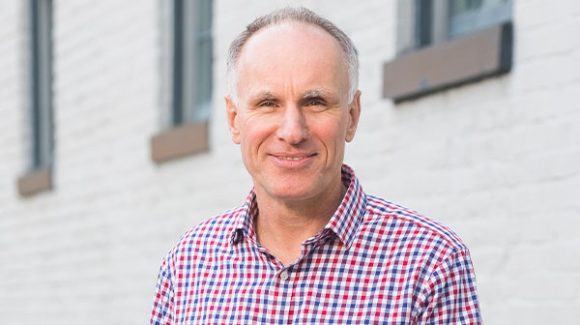Do you ever ask yourself why the majority of businesses out there are struggling to survive while an elite handful are crushing it? On today’s podcast we are discussing that question.
Our guest is Steve Preda, founder of Steve Preda Business Growth. He is also an author of three books and the host of the Management Blueprint Podcast.
Steve coaches business owners to help them reach their ambitions, which often means scaling and maximizing their companies’ profitability or making business ownership a more pleasurable, fulfilling experience.
Steve’s life mission is to eradicate what he calls “Business Covid.” He says 180,000 businesses in the U.S. disappear each year because their owners don’t have the knowledge and tools that are essential to be successful.
Steve himself is an entrepreneur. He founded investment banking firms in his native country of Hungry and later in the United States.
If you you’re looking for insight to help your business reach its potential I suggest you have a listen.
Question: What do you think you need to improve on in your business?
Listen on your favorite podcast app using pod.link, or:
View the podcast our YouTube Channel.
Facebook: https://www.facebook.com/swarfcast
Instagram: https://www.instagram.com/swarfcast/
LinkedIn: https://www.linkedin.com/company/todays-machining-world
Twitter: https://twitter.com/tmwswarfblog
*************
Link to Graff-Pinkert’s Acquisitions and Sales promotion!
*************
Interview Highlights
Noah Graff: Steve, give me an overview of your business.
Steve Preda: My business is called Steve Preda Business Growth. We grow businesses by systemizing, simplifying, and conceptualizing methods to increase profitability and create engaged workforces.
There are 1.7 million small and medium businesses in the US alone. Many suffer from what I call Business COVID – they lack the skills to scale up. Our mission is to eradicate “Business COVID” and help owners achieve their ideal life by building great companies.
About 180,000 businesses disappear each year because founders are technicians, not formally trained in business.
As Michael Gerber’s The E-Myth explains, technicians start businesses but don’t know how to build them. We simplify concepts and tools to grow businesses more methodically.
Noah: Can people learn to think like entrepreneurs?
Steve: Yes, they need things simplified and tailored so they can stay focused on their expertise. We bring them proven systems and make it easy to implement.
Noah: Tell us your story.
Steve: I was born in Budapest to professional parents. My idol was my entrepreneur great-grandfather who built a successful bakery business between the World Wars. I thought I’d be an entrepreneur after college.
But I got scholarships and corporate jobs that delayed my entrepreneurial journey. At 35, after getting “pushed out” during bank downsizing, I finally started my own investment banking firm in Budapest. I acquired and prepared small-medium companies for sale, like I did for larger public corporations at the bank.
Noah: Was it difficult to come to the US?
Steve: No, I opened a US affiliate of my firm easily on a business visa. But America’s competitive landscape was totally different than Europe’s. I ultimately pivoted to join Vistage, a coaching organization, to learn sales, marketing and recruitment in this new environment.
Noah: Explain Vistage and why you saw it as a gateway to coaching.
Steve: Vistage facilitates peer advisory groups for high-level executives. I saw it as running a mastermind group. The concept is: none of us is as smart as all of us. A group can access collective knowledge through conversation, brainstorming and networking.
I had run a mastermind group in Budapest and implemented coaching concepts from Michael Gerber’s book The E-Myth. So Vistage felt like a logical step, though my revenues were much smaller than peers. I wanted to “fly with eagles” and absorb their entrepreneurial experience.
Noah: How did you transition to individual coaching?
Steve: After two years of facilitating, I needed a scalable coaching model to afford four kids’ college (tuition). I devised a plan to speak at Vistage events to attract clients. I began facilitating leadership team sessions focused on business viability.
I implemented Traction’s operating system and wrote some books. When Vistage franchised, I started an independent firm teaching the five Pinnacle principles: Purpose, People, Playbooks, Performance, Profit.
Noah: Walk through the Pinnacle model.
Steve: You align people to a powerful purpose through playbooks that create consistency. You coach employees and clarify roles. With an exciting vision, strategy and aligned team, performance improves. Profit is the byproduct.
We also set goals, metrics and processes to weed out unproductive activities. I help clients build a business machine and then make it unassailable through strategic differentiation.
Noah: In your coaching sessions, what is one of the main obstacles?
Steve: The owner. They want to control everything even as it bottlenecks growth. I push clients to delegate and get uncomfortable. With the right plan and team, the founder can be replaced operationally. My mission is helping committed entrepreneurs build an organization that scales.
Noah: What percentage of your clients succeed versus stay stagnant?
Steve: My client selection has improved, so now over 90% of clients achieve change and growth. The key is picking people truly willing to get uncomfortable and listen to new approaches.
Their business also needs to solve a market need and have leadership team support.
Noah: To wrap up – what is your message to entrepreneurs?
Steve: View your company as a vehicle for growth, not a static entity. With the right systems and team, you can build an organization that empowers you to achieve your ideal life. But you must take risks and step outside your comfort zone. There’s no greater adventure!
Note: This transcript excerpt is a condensed depiction of the interview, created with the assistance of AI. Various sentences and paragraphs have been combined or paraphrased to improve readability.
Podcast: Play in new window | Download



